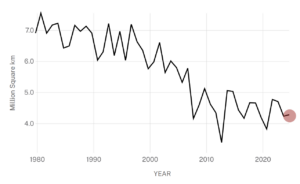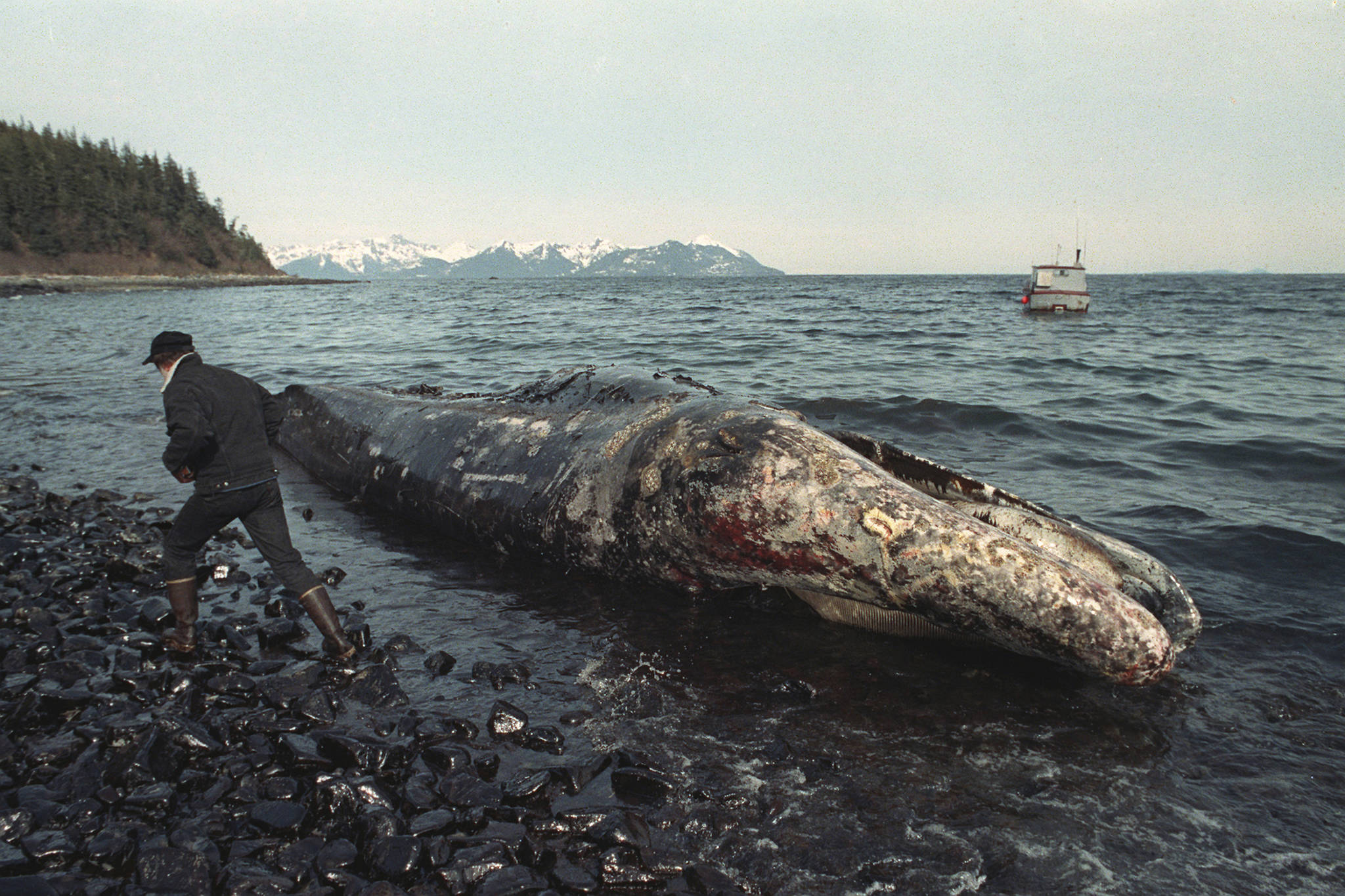If there is one thing that President Trump has made rather clear in the buildup to his inauguration, it is that he is the opposite of an environmentalist. He has frequently promoted oil drilling, criticized the development of renewable energy, and has even gone as far as to endorse oil drilling in the Arctic National Wildlife Refuge. Rightfully, this has caused much controversy. Yet what are the consequences of drilling in the Arctic? Why even drill there in the first place?
Arctic Oil
The Arctic is home to an estimated 90 billion barrels of oil, and 44 billion barrels of natural gas liquids. This has led to there being much interest in oil drilling in the Arctic from many American politicians. To some, it will lower dependence on foreign oil, create hundreds of thousands of jobs, and could cause great economic growth in the North. However to others, doing so will cause an overreliance on oil, would disturb the fragile ecosystem, amplify the effects of climate change, or at the very worst, contribute to the extinction of all human life on Earth. Recently, President Trump, with the words “drill baby, drill”, has been a staunch supporter of drilling in the Arctic, even on protected sites set aside for wildlife.
Current Status
At the time of this article being written, no major oil drilling operations are present in the Arctic. However despite this, wildlife in the Arctic, and the Arctic ecosystem as a whole still remains at risk. Animals such as the Polar Bear and the Walrus have a conservation status as ‘Vulnerable’ and others such as the Saimaa Ringed Seal are endangered, with only 500 of their species left. Despite living in Finland, animals across the Arctic circle are affected as the region continues to be ravaged by climate change. The Arctic also continues to suffer the effects of manmade climate change even without oil drilling, with the ice sheet that comprises the region continuing to melt at an alarming rate, causing sea levels globally to rise, threatening the existence of entire cities and nations. Regarding melting ice, a report from NASA that studied the minimum extent of Arctic ice in the month of September showed that September Arctic sea ice is shrinking at 12.2% per decade on average. In 1980, the minimum extent of Arctic sea ice was 6.90 million sq km, but in 2024 it was reported as 4.28 million sq km. There is little doubt that unless further action is taken against climate change, we may witness the end of the entire Arctic biosphere within our lifetime, and heavily rising temperatures threatening to end all human life alongside it.

Effects of Arctic Drilling
By far the largest polluters and contributors to climate change, are oil companies. Oil companies more or less ravage the environment through things like drilling and fracking, bribe (or “lobby”) politicians to support them as opposed to renewable energy, and in the process, harm those who live on the land that they harm, whether it be animals or people. Afterwards, they blame the damage they cause to the environment on the common people through things the idea of the “Carbon Footprint”, developed by Ogilvy & Mather, a New York City public relations firm that developed the idea on behalf of the British Petroleum Company in an effort to shift responsibility for climate change onto individuals rather than the companies that drive climate change and demand for the products that contribute to it. Given that oil companies do all of this and successfully get away with it, the damage that would be done to the Arctic is incalculable.
Given that the minimum extent of Arctic ice is already declining year by year, oil drilling would accelerate this process significantly due to increased carbon emissions in the region. Factors that would increase carbon emissions would be emissions from oil rigs, oil tankers, and other infrastructure and equipment required to harvest and transport the oil. At the current moment, the Maldives is sinking at an alarming rate, being expected to be entirely submerged in 2100, along with other island nations such as Tuvalu. Arctic oil drilling would only increase the rate at which these nations disappear. At the same time, major cities such as Jakarta, Indonesia are also at risk of flooding, in fact by 2050 entire swathes of the city are expected to be fully submerged. Rising sea levels around the world are currently displacing millions, driving poverty by ravaging towns and cities, and the longer it goes unchecked, the more possibility it will become irreversible. Trump’s plan for Arctic oil drilling will make it irreversible.
The aforementioned paragraph describes consequences if things go right for Trump’s Arctic oil dreams. If things go wrong and disaster such as an oil spill occurs, things become far, far worse. Currently, there is no definitive plan for how authorities should respond to and clean an Arctic oil spill. Making matters worse, any response would be hampered by icebergs, low visibility, and the need to travel for extremely long distances to clean the spill. For the animals that call the Arctic home, it would contaminate their food supply, destroy their breeding grounds, and habitat as a whole, putting many at risk of extinction. By extension, this would decimate the indigenous communities near the Arctic as their food becomes poisoned. For agriculture, Northern fisheries would be all but destroyed. As if this wasn’t enough, at near-zero temperatures, oil decomposes incredibly slowly, and it can become trapped under sea ice, therefore making it impossible to remove. The wind and currents could also blow it to other parts of the world, contaminating them in the process.

Don’t Destroy the World
While some may call this exaggeration, the overall truth is that there is no way to overstate this: Oil drilling is destroying the world. While it is true that renewables are not perfect and that third world countries do need to use oil until they can afford renewables, it is most important that as much be done to limit the expansion of oil drilling, for the sake of the world, its wildlife, and its people. At the current rate, we are already experiencing the effects of climate change as the South is hit by more winter storms than usual, larger and larger wildfires sweep California, virtually every year a new hottest average is recorded, it is undeniable that climate change is manmade, and happening. It is therefore more than likely that climate policy made in the next few years may determine the fate of millions, if not billions, or perhaps even the world itself.
